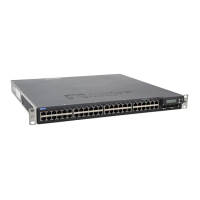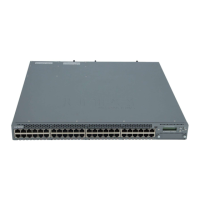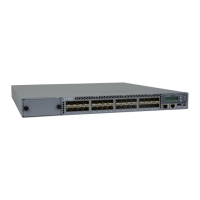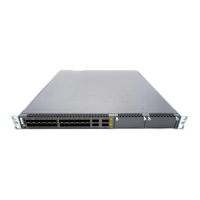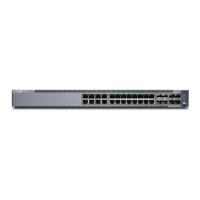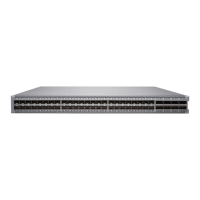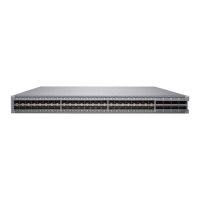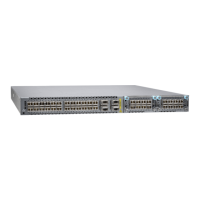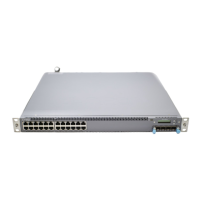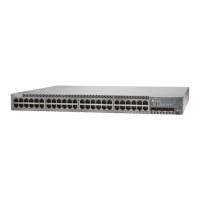CHAPTER 15
Performing Initial Configuration
•
EX4200 Default Configuration on page 161
•
Connecting and Configuring an EX Series Switch (CLI Procedure) on page 165
•
Connecting and Configuring an EX Series Switch (J-Web Procedure) on page 168
•
Configuring the LCD Panel on EX Series Switches (CLI Procedure) on page 173
EX4200 Default Configuration
Each EX Series switch is programmed with a factory default configuration that contains
the values set for each configuration parameter when a switch is shipped. The default
configuration file sets values for system parameters such as syslog and commit; configures
Power over Ethernet (PoE), storm control, and Ethernet switching on all interfaces; and
enables the LLDP and RSTP protocols.
When you commit changes to the configuration, a new configuration file is created that
becomes the active configuration. You can always revert to the factory default
configuration. See Reverting to the Default Factory Configuration for the EX Series Switch.
The following factory default configuration file is for an EX4200 switch with 24 ports
(for models that have more ports, this default configuration file has more interfaces):
NOTE: In this example, ge-0/0/0 through ge-0/0/23 are thenetwork interface
ports. Optional uplinkmodulesprovide either two 10-gigabit small form-factor
pluggable (XFP) transceivers (xe-0/1/0 and xe-0/1/1) or four 1-gigabit SFP
transceivers (ge-0/1/0 through ge-0/1/3). Although you can install only one
uplink module, the interfaces for both are shown below.
system {
syslog {
user * {
any emergency;
}
file messages {
any notice;
authorization info;
}
file interactive-commands {
161Copyright © 2017, Juniper Networks, Inc.
